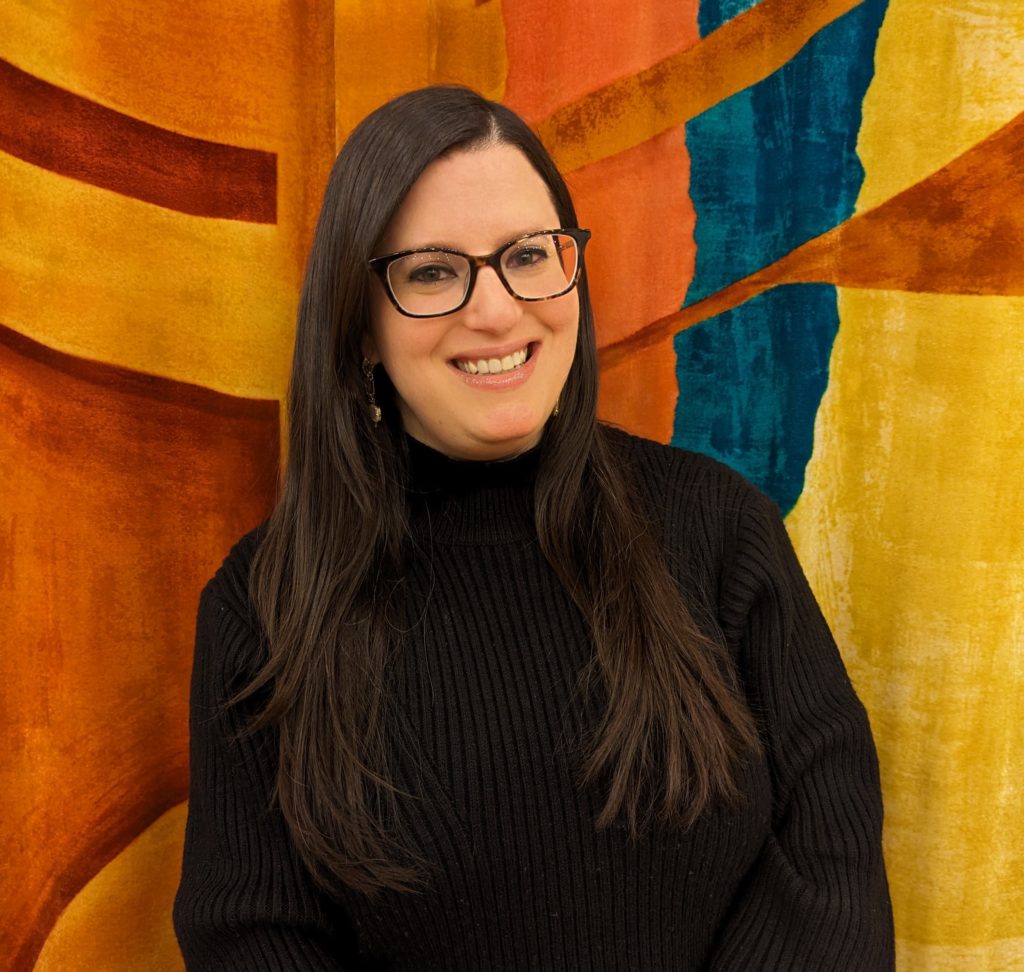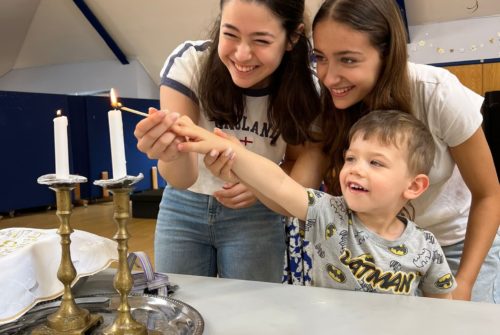In a moment I’m going to ask you to do something new.
And I’m going to ask you just for a moment to trust me.
I am going to divide the room into 3 groups…. and I am going to ask each group to sing a note with me. 3 different notes, for 3 different groups. And together, we are going to build a chord.
Now in order for this to work, I need to tell you two things.
First: breathe. This is not a competition to see who can hold a note the longest – so if you need to breathe and then start singing again, please do. This is called staggered breathing: when a group of people sing together and all breathe at different times so that the breaths of the whole group are less noticeable to the listener.
The second thing to remember is that this will not sound perfect, and that is okay. This is not a performance. This is about bringing a room full of people together, hearing the blend of our voices, and creating something unique and beautiful together… ready? Here we go.
…………………………
That moment – that feeling that we have just experienced together – this is why I decided to become a Cantor. In the words of Rabbi Abraham Joshua Heschel, “music is more than just expressiveness. It is a reaching out.”
Music just connected each person in this room in an extraordinary way. You won’t have noticed this, but in the last few minutes, all of our heart rates will have slowed and synced up together as well. Just by virtue of us singing together.
Music has the power to physically and emotionally unify us, to chip away at the walls we build around our hearts, and to push us beyond our comfort zones into a place of growth — just as we experienced a few moments ago.
Music is powerful. And Jewish music comes with even more superpowers: it grounds us in time, place, and memory, and it connects us to thousands of years of words and music that bring meaning to our lives.
Jewish music was my avenue into Judaism itself. As a child, I loved coming to shul on Shabbat. I actually looked forward to it. I especially loved hearing my Cantor daven hazzanut: chanting the ornate cantorial recitatives that spoke directly to my soul. This, I learned from him, was real, traditional Jewish music. I was hooked — and it is because of my Cantor that I became a Cantor.
Imagine my surprise when I went out into the world and learned that the word “traditional” meant something different to just about every person — especially when it came to Jewish music!
But this has now become one of my favorite parts of my Cantorate: learning what is “traditional” to each of you, and what brings Jewish meaning and connection into your lives.
One of the things that makes being a Cantor so gratifying is that we inherit and safeguard Jewish musical traditions, while also ensuring that as our community evolves over time, so does its music. This can be a tricky balance to strike.
But this week’s Torah portion frames this balance between tradition and innovation in a really beautiful way.
Towards the end of our Torah portion on this Shabbat, we witness Israel preparing to bless Ephraim and Menasseh. But as he does so, he breaks with tradition.
Tradition dictated that Menasseh, the older of the two brothers, should receive Israel’s blessing. But instead, Israel placed his right hand on the head of Ephraim, the younger brother.
When Joseph saw what his father was doing, he thought it was wrong; so he took his father’s hand to move it from Ephraim’s head to Menasseh’s.
But Israel objects and says to Joseph: I know, my son. I know what I am doing.
Israel knew this was not the “traditional” way. He had immense reverence for tradition – and at the same time, he recognized when a moment called for a shift in the way things are done.
He cared so deeply about the world his children would inherit that he took an enormous risk, with an eye towards a future he would not live to see.
Israel understood that in stepping outside of his comfort zone, and in momentarily breaking away from the norm, he laid the groundwork for his children and their children to thrive — while still safeguarding the traditional framework that sustained the Israelites for generations.
One of my favorite quotes, attributed to Rav Kook, is that we should “make the old new, and make the new holy”.
This ethos is at the core of so much of what I get to do each day alongside Rabbi Mark, Rabbi Debbie, and Rabbi Tanya. We are constantly engaged in this age-old balancing act between tradition and innovation, familiarity and creativity. I can think of no better clergy team with whom to do this sacred work.
And I feel privileged to be part of this extraordinary EHRS community, navigating this delicate balance together between old and new in order to bring about moments of connection and blessing.
It is my hope that we can continue doing this work and walking this path together, harmoniously, for many years to come.




